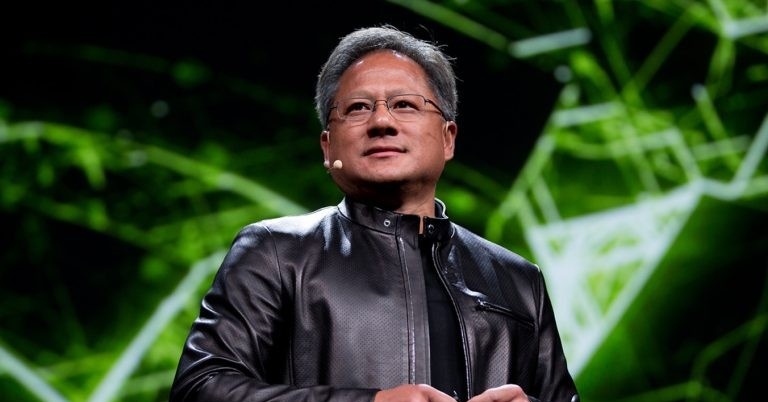Nvidia CEO Jensen Huang rejects CEO offer from TSMC. $NVDA (+0,86%)
$2330
$INTC (-0,16%) . $ASML (+1,51%)
$AAPL (+0,23%)
TSMC co-founder Morris Chang has published his memoirs. In addition to warm anecdotes about Nvidia, there are less friendly ones about Intel.
Morris Chang is often referred to as Taiwan's semiconductor godfather. The co-founder of TSMC, the world's most important contract manufacturer for semiconductors, is undisputedly one of the most important personalities in the industry. The former TSMC CEO recently published the second part of his memoirs about his time in the semiconductor industry. Initial reviews of the memoirs, which have so far only been published in Chinese, promise interesting insights into the industry.
Chang reveals his admiration for Nvidia and its CEO and co-founder Jensen Huang. The company, which became big with graphics cards and gigantic with AI, is one of TSMC's most important customers. Chang even wanted to make Huang his successor as TSMC CEO; he was the third candidate alongside C.C. Wei, the current CEO, and Mark Liu, who were both members of the company management at the time. According to Chang, Huang declined with the simple comment that he already had a job - even though TSMC offered him a significantly better income. However, shares in Nvidia would have made his move more difficult.
While Chang thinks highly of Nvidia and Huang in particular, the situation is different for the currently struggling competitor Intel - although Chang and Intel founders Gordon Moore and Robert Noyce have close contacts. Intel was also TSMC's first important customer, whose high standards had a decisive influence on the culture of the young contract manufacturer.
Gelsinger was not a good choice
However, Chang is more critical of Intel's recent history. For months, the company blocked Apple's switch from Samsung to TSMC as the manufacturer of the systems-on-chip (SoCs) for the iPhones.
In addition to TSMC, Apple negotiated with Intel, which ultimately refused to manufacture the SoCs because they were not profitable enough. Tim Cook, the current CEO, recognized this early on and reassured Chang at a meeting that Intel was "not good at the foundry business", i.e. contract manufacturing. Little has changed under the recently dismissed ex-CEO Pat Gelsinger.
At the same time, Chang denies Gelsinger's qualifications as Intel CEO - his selection was more like a rhetorical competition than a serious search for a suitable CEO. Chang also seems to resent the fact that Gelsinger wanted to establish Intel as a competitor to TSMC - in his opinion, Intel should concentrate on AI rather than its foundry business. However, analysts have a different opinion.
Chang also has an interesting anecdote about ASML, today the most important manufacturer of exposure machines for the semiconductor industry: TSMC is not insignificantly responsible for the company's success. Through the joint partnership with Philips, the young company was backed early on, even though its machines were more expensive than those of its Japanese competitors at the time.
https://www.vietnam.vn/de/jensen-huang-tu-choi-lam-ceo-xuong-duc-lon-nhat-the-gioi/



